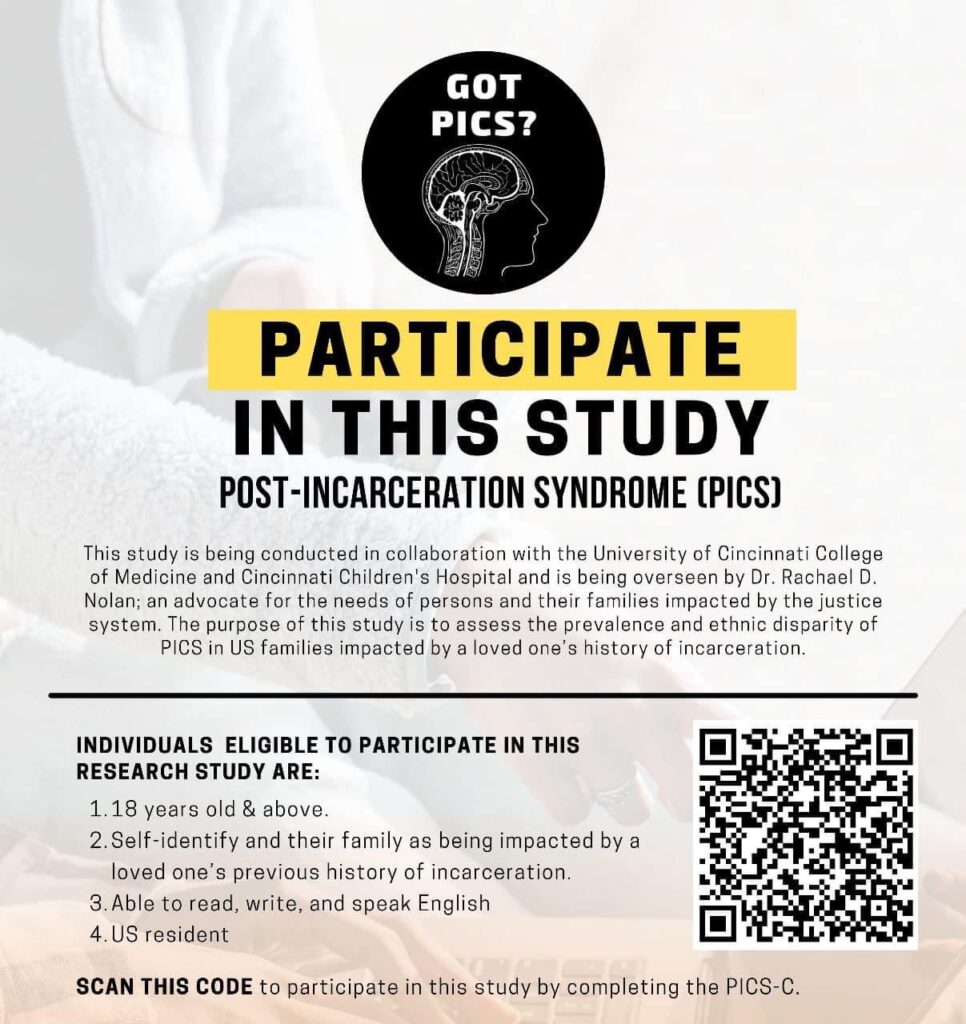Got PICS
What is PICS
Post-Incarceration Syndrome(PICS) is characterized by five stages: Institutionalized Personality Traits, Post-Traumatic Stress Disorder, Antisocial Personality Traits, Social Sensory Deprivation Syndrome, and Substance Abuse Disorder. Despite evidence suggesting a high prevalence of mental illness among inmates, the American Psychological Association (APA) has not yet acknowledged this reality due to research limitations within prisons, potentially underestimating the true extent of harm and mental health issues in carceral settings.
Post-Incarceration Syndrome (PICS) encompasses a range of symptoms, including anxiety, depression, difficulty concentrating, nightmares, hypervigilance, and social alienation, experienced by individuals upon release from incarceration. These symptoms are often attributed to the traumatic experiences of incarceration, such as loss of freedom, exposure to violence, isolation, and limited access to resources. Reintegration challenges, such as finding housing, employment, and dealing with stigma, further exacerbate PICS. Treatment options typically involve therapy, support groups, and assistance with practical needs.
Where It Began
Terence T. Gorski (1949–2020), MA, CAC, was the founder and president of The CENAPS Corporation, an international training and consulting organization specializing in addiction and related mental health problems with a specialty in relapse prevention and cognitive restructuring. Mr. Gorski coined the phrase PICS, or Post Incarceration Syndrome, to identify the psychological effects and trauma as a result of incarceration.
The Research Study
Post Incarceration Syndrome (PICS): A Comprehensive Study on the Trauma Effects of Incarceration Research Study
OPJL is the research arm of SOAR 4031 Foundation. This project began in 2022 aimed to focus on the mental health of those affected by the incarceration experience.
Researchers;

Dr. Rachael Diane Nolan, PhD, MPH, CPH (Associate Professor Educator, University of Cincinnati School of Medicine) Lead Researcher

Chazidy Bowman PICS Subject Expert Project Lead

Michelle Alia Siddiqui (3rd Year Medical Student, Ohio University Osteopathic Medicine) CITI Trained Reviewer

Pooja Gohil (Graduate Student MPH-Epidemiology, University of Cincinnati) CITI Trained Reviewer
Introduction:
Post Incarceration Syndrome (PICS) is a complex set of symptoms experienced by individuals after release from incarceration, characterized by psychological and physiological distress. Despite its prevalence, PICS remains largely unrecognized and underdiagnosed. Our research, conducted in collaboration with the University of Cincinnati School of Medicine, aims to bridge this gap by conducting a comprehensive quantitative and qualitative study to shed light on the impacts of the trauma of the incarceration experience.
Methodology:
Our study utilizes a mixed-methods approach, combining quantitative data analysis with qualitative insights from focus groups composed of incarcerated, formerly incarcerated individuals, and their support systems. By compiling a national survey, we aim to gather diverse perspectives and experiences to provide a comprehensive understanding of PICS.
Goals:
- Identification and Recognition: Our primary goal is to raise awareness and facilitate the recognition of PICS as a legitimate disorder. By highlighting the psychological and physiological ramifications of incarceration, we aim to validate the experiences of those affected and advocate for proper diagnosis and treatment.
- Inclusion in DSM-5: We aspire to contribute substantive evidence to the American Psychological Association (APA) and advocate for the inclusion of PICS in the Diagnostic and Statistical Manual of Mental Disorders (DSM-5). Acknowledging PICS as a recognized disorder will enhance access to appropriate interventions and support services for affected individuals.
- Recidivism Reduction: Understanding the triggers and mechanisms underlying PICS is crucial for effective intervention and reducing recidivism rates. By identifying and addressing the root causes of reoffending, we aim to break the cycle of incarceration and promote rehabilitation and reintegration into society.
Implications:
The implications of our research are far-reaching. By shedding light on the often-overlooked consequences of incarceration, we hope to catalyze systemic changes in policies and practices surrounding criminal justice and mental health. Moreover, by amplifying the voices of those directly impacted by PICS, we seek to foster empathy, understanding, and support within communities and institutions.
Our research represents a crucial step towards addressing the multifaceted challenges faced by individuals affected by PICS. Through rigorous scientific inquiry and advocacy efforts, we aspire to effectuate meaningful change in the recognition, treatment, and support of this vulnerable population.

